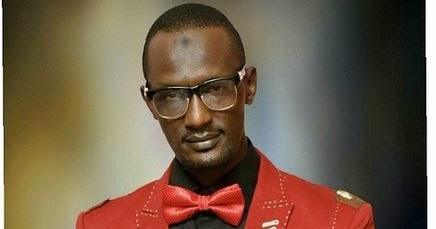Nollywood actor, Funky Mallam has come out to blast the poor electricity supply in his area. He recently recounted the story of a PHCN official who was mistakenly burnt to death while carrying out his duty in Alagomeji, Yaba, and Nigerians have been reacting.
According to him, Yaba has not had power for days and nobody knows exactly what the problem is, but the electricity tariff has been increased three times now while the power supply has remained poor.

Mallam added that power supply is supposed to improve with the emergence of pre-paid meters, but that has not been the case thus far.
His words, “Who is checkmating these guys? They keep telling us that when the tariff is being increased, light is going to be constant but it has never been constant. It is even becoming worse even with the tariff that has been increased.”
On the death of a PHCN official, “This guy in my area that happens to be a very popular guy in my area, Oluwole, This guy called his office to tell them that he and his team are about to work and then he climbed the pole. They turned off the light for him to start working. This boy climbed the pole, grabbed the cable and as he was working, somebody came and turned on the light and this was burnt seriously, smoke coming out from his nose, ear, eyes and everywhere. They roasted him. He fell from up TO down. This guy has dedicated his life working for PHCN and the PHCN guy came to say it was a mistake…somebody who called the office to say he is working..put off the light because of my life and you say it was a mistake…that man is gone for good.”
WOW.
Nollywood is a sobriquet that originally referred to the Nigerian film industry. The origin of the term dates back to the early 2000s, traced to an article in The New York Times. Due to the history of evolving meanings and contexts, there is no clear or agreed-upon definition for the term, which has made it a subject to several controversies.
The origin of the term “Nollywood” remains unclear; Jonathan Haynes traced the earliest usage of the word to a 2002 article by Matt Steinglass in the New York Times, where it was used to describe Nigerian cinema.
Charles Igwe noted that Norimitsu Onishi also used the name in a September 2002 article he wrote for the New York Times. The term continues to be used in the media to refer to the Nigerian film industry, with its definition later assumed to be a portmanteau of the words “Nigeria” and “Hollywood”, the American major film hub.
Film-making in Nigeria is divided largely along regional, and marginally ethnic and religious lines. Thus, there are distinct film industries – each seeking to portray the concern of the particular section and ethnicity it represents. However, there is the English-language film industry which is a melting pot for filmmaking and filmmakers from most of the regional industries.
Support InfoStride News' Credible Journalism: Only credible journalism can guarantee a fair, accountable and transparent society, including democracy and government. It involves a lot of efforts and money. We need your support. Click here to Donate
